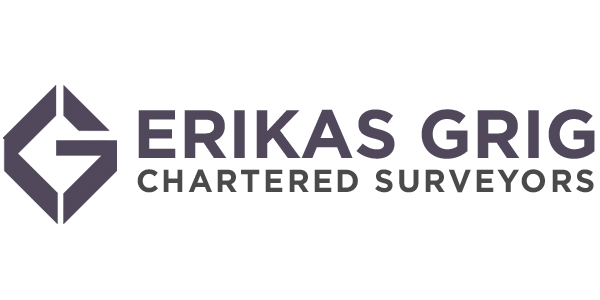Probate Valuation
Probate Valuation of Property & Contents by Expert Chartered Surveyors Firm
“We have an annual track record of conducting millions of property and house contents valuations, and we will stand as your trusted partner providing precise and reliable advice that complies with HMRC guidelines and averts scrutiny by District Valuers.”
To avoid HMRC scrutiny, seeking an RICS regulated chartered surveyor is essential. Unlike estate agents, our service, though fee-based, offers precise valuations for probate without agenda, which is crucial for estates close to or above the inheritance tax threshold.
The weight of an RICS chartered surveyor valuation proves invaluable, especially if HMRC challenges your submitted value. Erikas Grig Chartered Surveyors provides the expertise needed when dealing with house contents, non-standard properties, high development potential, or those exceeding £325,000 in value.
When Do You Need RICS Probate Valuation?
You need a professional valuation by a chartered surveyor for estates with a gross value exceeding £325,000. If the value of the estate falls significantly below this amount, then estimates should be adequate.
If the deceased’s contents such as art, antiques, jewellery and other chattels are estimated to be over £1,500 in value you will need these accurately valued by a qualified professional valuer.
When property ownership is involved, it is necessary to determine the “market value,” also known as the open market value or OMV. This is the amount that the property is expected to sell for on the open market when the deceased passes away.
Valuation needs to take place before the probate office can issue a Grant of Probate. If the estate includes a property for probate valuation, this is referred to as “probate property”
A grant is required before the assets of a deceased person can be allocated to beneficiaries as instructed in the Will.
If circumstances result in the deceased dying intestate (no Will present), all assets in the estate pass on to the next of kin. This also requires a Letter of Administration from the probate registry office.

Frequently Asked Questions
Explore our comprehensive FAQ sections, crafted to provide clear and detailed answers to common inquiries we get about probate valuation and our company.
Why using estate agent valuations for probate is not recommended?
There are a number of reasons why using estate agent valuations is not recommended:
Estate agent valuations are often informal and don’t provide the necessary formal documentation required by HMRC for probate purposes. Estate agents may inflate property values, providing an estimated “asking price” rather than an accurate market valuation, which can lead to overestimating the estate’s worth.
Different estate agents may present highly variable values for the same property, making it challenging to determine an accurate probate valuation. Estate agents do not have the expertise to handle complex valuations, especially for properties that deviate from standard designs, have development potential, or are in need of extensive renovations.
HMRC may challenge valuations submitted by executors and administrators if they use property valuations provided by estate agents as they often lack the substantiation and weight that comes with a regulated valuation produced by a chartered surveyor.
Why should you use chartered surveyor for a probate valuation?
Chartered surveyors provide market valuation reports that meet the rigorous standards set by the Royal Institution of Chartered Surveyors (RICS) and HMRC only employs chartered surveyors to challenge and review estate submissions.
Chartered surveyors when producing market valuation for inheritance tax purposes rely on the IHT manual, RICS Global Valuation Standards and provisions of the Inheritance Tax Act 1984.
Chartered surveyors possess the necessary expertise to handle complex valuation scenarios, including properties with unique designs, development potential, or extensive renovation needs.
HMRC is less likely to challenge valuations prepared by chartered surveyors due to the comprehensive evidence and professional standards associated with their reports.
Additionally, HMRC uses District Valuers who are chartered surveyors to challenge and review estate valuations. In case of HMRC challenges, chartered surveyors, like Erikas Grig, are experienced in negotiating directly with District Valuers, streamlining the process and protecting the estates from HMRC penalties.
Unlike estate agents, we can provide valuations for both property and chattels, offering a comprehensive service that covers all aspects of the estate valuation process.
Chartered surveyors, especially those with a proven track record like Erikas Grig, bring years of experience and success in handling probate valuations, instilling confidence in administrators and executors.
Who is responsible for obtaining a professional valuation for probate?
Generally, the Personal Representatives of the deceased individual are responsible for the probate valuation. This can be the executor named in the will or the administrator of the estate.
Are there any penalties for misstating property value for IHT?
Between 2011 and 2012, the HMRC made £88 million from the challenging property valuations submitted by executors and administrators. Paying extra inheritance tax and penalties due to inaccurate valuations can come as a huge blow.
The government website states that:
If a penalty arises because of a lack of reasonable care, the level of the penalty will depend on the reasons for the error and the potential lost revenue. The potential lost revenue is an additional amount of tax which is due or payable as a result of correcting the inaccuracy.
For example, if:
- a penalty arises because of a lack of reasonable care, the penalty will be between 0% and 30% of the extra tax due.
- the error is deliberate, the penalty will be between 20 and 70% of the extra tax due.
- the error is deliberate and concealed, the penalty will be between 30 and 100% of the extra tax due.
Therefore, for estates exceeding the £325,000 inheritance tax limit, it is not recommended to submit unregulated property valuations or estimates to avoid potential penalties.
How long does a probate valuation take?
The timeline varies based on the complexity of the estate, however, our valuation report turnaround for property and chattels is 5 working days from the date of inspection. Multiple properties in the estate might take slightly longer.
What if probate property was sold for higher price than declared in IHT form submission?
A higher sale price often results in the HMRC increasing the owed inheritance tax, especially if the sale takes place soon after probate is granted.
This often can happen if representatives of the deceased’s estate have relied on informal valuations produced by estate agents.
It is possible to challenge the increase made by HMRC by negotiating with the District Valuer responsible for an estate review. However, this is often very time-consuming and technical. We can negotiate on your behalf and work out arrangements directly with the District Valuer appointed to manage your case.
In addition, you might be liable for Capital Gains Tax if you sell the property for more than its declared probate value. Capital Gains Tax is calculated on the increase since the deceased’s date of death and is only charged when the property is sold.
Contact Us
Prefer to Call or Email Us?
Services We Offer
It is our mission to empower executors and administrators of the deceased’s estate with the professional advice they need to ease the burden and discharge inheritance tax liability fairly.

Erikas Grig MRICS
Director, Erikas Grig Chartered Surveyors
REVIEWS
See What Our Customers Are Saying
Our team’s passion for precision and personalized service ensures every customer feels heard and cared for, leaving them thrilled with the results.
A Quick Way To Get In Touch With Us
Ready to take the next step in seeking advice about probate valuation?
Click through to our contact form for quick, guaranteed assistance. At Erikas Grig Chartered Surveyors, we prioritize your needs, and our commitment to a rapid response ensures you get the support you deserve.

